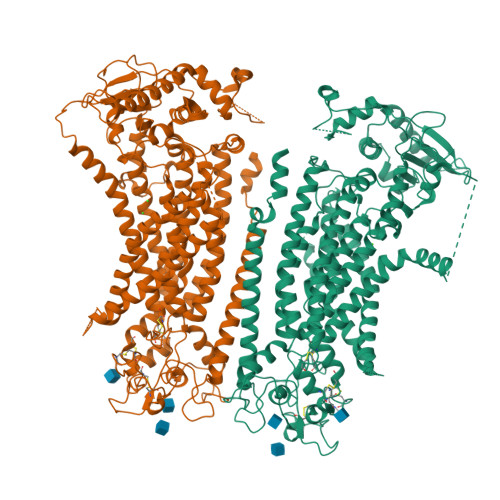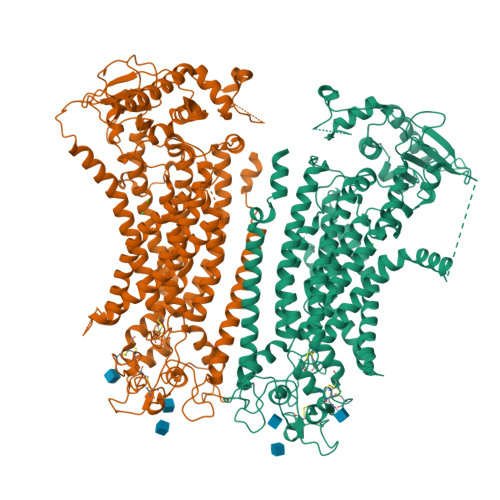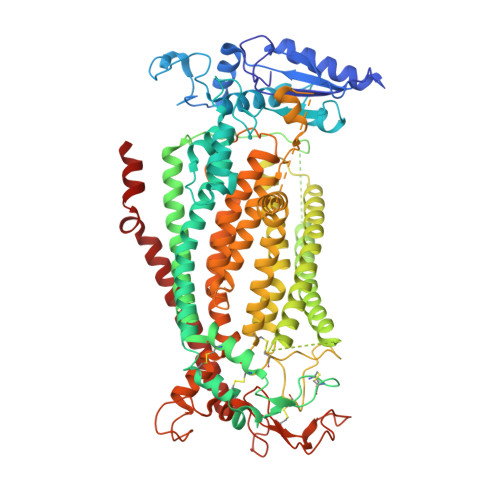Identification of a drug binding pocket in TMEM16F calcium-activated ion channel and lipid scramblase.
Feng, S., Puchades, C., Ko, J., Wu, H., Chen, Y., Figueroa, E.E., Gu, S., Han, T.W., Ho, B., Cheng, T., Li, J., Shoichet, B., Jan, Y.N., Cheng, Y., Jan, L.Y.(2023) Nat Commun 14: 4874-4874
- PubMed: 37573365
- DOI: https://doi.org/10.1038/s41467-023-40410-x
- Primary Citation of Related Structures:
8SUN, 8SUR, 8TAG, 8TAI, 8TAL - PubMed Abstract:
The dual functions of TMEM16F as Ca 2+ -activated ion channel and lipid scramblase raise intriguing questions regarding their molecular basis. Intrigued by the ability of the FDA-approved drug niclosamide to inhibit TMEM16F-dependent syncytia formation induced by SARS-CoV-2, we examined cryo-EM structures of TMEM16F with or without bound niclosamide or 1PBC, a known blocker of TMEM16A Ca 2+ -activated Cl - channel. Here, we report evidence for a lipid scrambling pathway along a groove harboring a lipid trail outside the ion permeation pore. This groove contains the binding pocket for niclosamide and 1PBC. Mutations of two residues in this groove specifically affect lipid scrambling. Whereas mutations of some residues in the binding pocket of niclosamide and 1PBC reduce their inhibition of TMEM16F-mediated Ca 2+ influx and PS exposure, other mutations preferentially affect the ability of niclosamide and/or 1PBC to inhibit TMEM16F-mediated PS exposure, providing further support for separate pathways for ion permeation and lipid scrambling.
Organizational Affiliation:
Department of Physiology, University of California San Francisco (UCSF) School of Medicine, San Francisco, CA, USA.


















